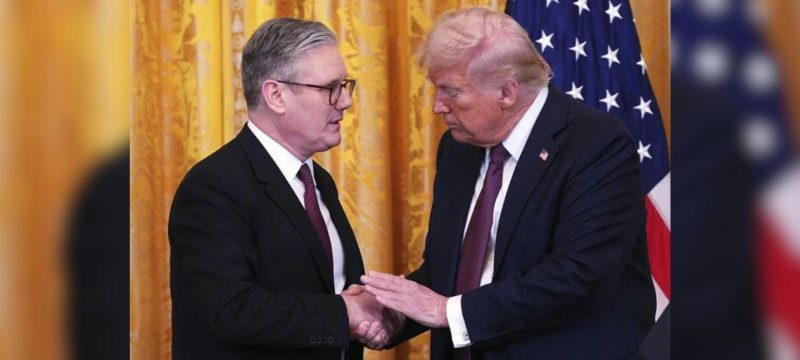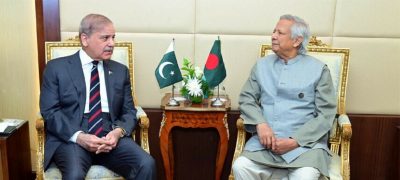The United Kingdom and the United States revealed a new trade agreement on Thursday, which will partially reduce the tariffs imposed by President Donald Trump earlier this year, offering relief to key British industries. This agreement will lower the 25% import tax on British-made cars to 10% for up to 100,000 vehicles annually. Additionally, the deal revises quotas on tariff-free UK steel and aluminum exports to the US and promotes expanded agricultural trade between the two nations.
Although no formal treaty was signed, British Prime Minister Sir Keir Starmer praised the agreement as a strong foundation for future cooperation. He highlighted that the deal would safeguard “thousands of British jobs” in sectors like car manufacturing and steel, emphasizing that the UK has “no greater ally than the United States.” In Washington, President Trump called the deal a “great deal,” dismissing criticisms that it lacked significant change, describing it as “maxed-out,” with plans for future expansion.
Read more: Trump Imposes 100% Tariff on Foreign Films in Bid to ‘Save’ Hollywood
The agreement addresses the 25% tariff increase on cars that was implemented earlier this year, which could have severely impacted British luxury carmakers like Jaguar Land Rover and Rolls Royce. Although the new deal reduces the tariff to 10%, it limits this to 100,000 vehicles annually, which mirrors the current export volume, restricting future growth potential. British Business Secretary Jonathan Reynolds remarked that the UK had narrowly avoided significant job losses, which would have occurred without this breakthrough.
Tariffs on steel and aluminum, raised to 25% earlier this year, will now be governed by quotas, reinstating a system similar to what existed before Trump’s tariff hikes. Additionally, the US and UK agreed to allow 13,000 metric tonnes of beef to be imported tariff-free annually, a significant increase from the previous cap of 1,000 tonnes. This is expected to greatly benefit US beef sales to the UK, which had been subject to a 20% tariff.
The US government stated that these changes would unlock a $5 billion opportunity for American exports, including $700 million in ethanol and $250 million in agricultural goods. US Agriculture Secretary Brooke Rollins celebrated the deal as a “major milestone” for American farmers and ranchers.
While the deal was praised by UK Steel Director General Gareth Stace, who described it as “major relief” for the sector, business leaders were more reserved. Duncan Edwards, CEO of BritishAmerican Business, expressed cautious optimism, stating that while the deal is an improvement, it is still not as favorable as the pre-tariff situation. In Westminster, political reactions were divided. Conservative leader Kemi Badenoch criticized the deal, calling it one-sided and leaving UK industries vulnerable. Meanwhile, Liberal Democrat leader Sir Ed Davey demanded a parliamentary vote, expressing concerns over ongoing tariff impacts on British industries. Nigel Farage of Reform UK welcomed the deal as a “step in the right direction,” seeing it as a benefit of Brexit.
However, the agreement did not address ongoing issues in pharmaceutical trade or food standards. The US has previously pushed for greater access to the UK market for American-made drugs and changes to UK food safety regulations—both sensitive topics politically. While the UK government assured that food safety standards would not be compromised, trade lawyer Ewan Townsend pointed out that the healthcare industry is still awaiting clarification on what “preferential treatment” for British firms will mean in practice.
Economists like Michael Pearce of Oxford Economics are skeptical about the deal’s potential economic impact, stating that no major changes would be made to forecasts as a result of the announcement. Previous trade talks between the US and UK had stalled during Trump’s first term due to similar issues. Analysts caution that while this deal may provide temporary political relief, it is unlikely to result in a major shift in the long-term trade relationship between the two countries, with the core issues still unresolved.









